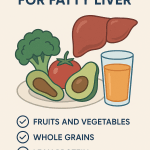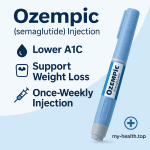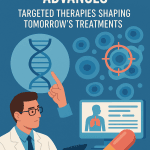Cancer is one of the most feared words in the world of health. Yet despite its frightening reputation, a growing body of research shows that our daily food choices can significantly reduce our risk. The phrase “let food be thy medicine” is more relevant today than ever, especially when discussing cancer prevention.
Scientific studies have confirmed that certain foods contain powerful compounds that can help fight cancer at the cellular level—by reducing inflammation, neutralizing free radicals, boosting immunity, and even stopping the growth of cancer cells. While no single food guarantees immunity from cancer, consistently choosing a nutrient-rich, plant-focused diet has been linked to lower cancer rates across populations worldwide.
In this article, we explore the top foods scientifically proven to lower your cancer risk, based on credible research and expert consensus. You’ll find out what makes these foods so powerful, and how you can incorporate them into your daily routine with ease and flavor.
Cruciferous Vegetables: Nature’s Cancer-Fighting Powerhouse
Cruciferous vegetables include broccoli, cauliflower, Brussels sprouts, cabbage, and kale. These veggies contain glucosinolates, which the body breaks down into biologically active compounds like sulforaphane and indole-3-carbinol.
These substances:
- Help detoxify carcinogens
- Inhibit tumor blood vessel formation
- Promote the death of cancerous cells
In particular, sulforaphane, found abundantly in broccoli sprouts, has been shown to target cancer stem cells, which are believed to fuel the growth of tumors and contribute to recurrence.
Incorporating cruciferous vegetables into your diet a few times a week can provide a steady defense system against cancers, especially of the breast, colon, prostate, and lungs.
Berries: Small But Mighty Antioxidant Machines
Don’t be fooled by their size—berries like blueberries, raspberries, blackberries, and strawberries are bursting with antioxidants such as anthocyanins, ellagic acid, and resveratrol.
These compounds help:
- Protect DNA from oxidative stress
- Reduce inflammation
- Inhibit the spread of cancer cells
Studies have shown that regular consumption of berries is linked to a reduced risk of esophageal, colon, and breast cancers. In one clinical study, individuals who consumed freeze-dried black raspberries showed a reversal of pre-cancerous conditions in the esophagus.
For a practical approach, try adding a handful of berries to your morning oatmeal, smoothie, or yogurt.
Garlic and Allium Vegetables: The Cancer Clove
Garlic, along with its relatives like onions, leeks, and shallots, belongs to the allium family, renowned for its disease-fighting capabilities. The key compound here is allicin, released when garlic is chopped or crushed.
Research shows that garlic can:
- Slow or prevent cancer cell growth
- Enhance DNA repair
- Reduce nitrosamine formation (carcinogens produced in the stomach)
According to the National Cancer Institute, populations with high garlic consumption show lower rates of stomach and colorectal cancers. Garlic also supports the immune system, helping your body detect and destroy abnormal cells early.
Crush garlic and let it rest for 10 minutes before cooking to maximize its cancer-fighting power.
Tomatoes: Lycopene’s Red Armor
The vibrant red color of tomatoes comes from lycopene, a powerful antioxidant shown to protect against several cancers, particularly prostate cancer.
Lycopene:
- Disrupts the growth of cancer cells
- Protects cells from oxidative damage
- Boosts the body’s natural defenses
Interestingly, lycopene is more bioavailable (i.e., better absorbed) when tomatoes are cooked. So, tomato sauce, soup, and even ketchup (with minimal added sugar) can be great sources.
Add cooked tomatoes to pasta, chili, or soup regularly to reap the benefits.
Green Tea: A Healing Brew Backed by Science
Green tea, especially varieties like matcha, contains catechins—a class of polyphenols known for their anti-cancer properties. EGCG (epigallocatechin gallate) is the most potent among them.
Green tea catechins can:
- Block cancer cell proliferation
- Inhibit tumor invasion and metastasis
- Neutralize free radicals
Multiple studies associate green tea consumption with a reduced risk of breast, prostate, lung, and colorectal cancers. In Japan, where green tea is consumed daily, cancer rates are notably lower.
Swap out one of your daily coffees with green tea or sip on it throughout the day.
Turmeric: Golden Spice, Golden Benefits
Curcumin, the active compound in turmeric, has been extensively studied for its potential to prevent and fight cancer. Known for its vibrant color and earthy taste, turmeric is a staple in traditional medicine and now a star in scientific journals.
Curcumin:
- Inhibits cancer cell growth and proliferation
- Suppresses inflammation and oxidative stress
- Disrupts molecular signaling in tumor cells
Studies have shown its potential in fighting colon, breast, pancreatic, and lung cancers. For best absorption, curcumin should be consumed with black pepper, which contains piperine, enhancing its bioavailability by up to 2000%.
Add turmeric to curries, soups, teas, or even golden milk.
Leafy Greens: Chlorophyll and Cancer Prevention
Spinach, kale, arugula, and Swiss chard aren’t just good for your bones—they’re also loaded with chlorophyll, fiber, folate, and carotenoids.
These nutrients:
- Bind and eliminate toxins
- Reduce DNA damage
- Support cell repair and immune function
A diet rich in leafy greens is particularly effective in lowering the risk of colorectal and breast cancers, thanks to their role in hormonal balance and digestive health.
Toss them in salads, blend into smoothies, or sauté lightly with olive oil.
Whole Grains: Fiber’s Silent Cancer Fighter
Fiber is one of the most underrated yet powerful tools in cancer prevention. Whole grains like oats, quinoa, barley, and brown rice provide soluble and insoluble fiber, antioxidants, and lignans.
Fiber:
- Speeds up waste removal
- Binds carcinogens in the digestive tract
- Promotes healthy gut bacteria
Research has shown that individuals who consume high-fiber diets have a lower risk of colorectal cancer. Furthermore, whole grains may help control blood sugar, reducing insulin spikes that can fuel cancer growth.
Choose whole grains over refined carbohydrates for long-term protection.
Nuts and Seeds: Tiny Protectors with Big Impact
Almonds, walnuts, chia seeds, flaxseeds, and sunflower seeds are packed with healthy fats, fiber, and cancer-fighting phytonutrients.
Key benefits include:
- Reduced inflammation
- Hormone balance (especially important for hormone-related cancers)
- Antioxidant support from vitamin E and selenium
Flaxseeds, in particular, are rich in lignans, which have been shown to slow the growth of breast and prostate cancer cells.
Sprinkle seeds on salads, oatmeal, or yogurt, and snack on a small handful of nuts daily.
Legumes: Protein-Packed Protectors
Beans, lentils, and chickpeas are high in fiber, resistant starch, and plant protein, all of which contribute to reduced cancer risk. Their fiber content supports digestion and the removal of potential toxins.
Studies show that regular legume consumption is associated with a decreased risk of colon, breast, and prostate cancers. They also help regulate insulin, which is vital as high insulin levels may promote tumor growth.
Make legumes a weekly staple in soups, stews, or meatless meals.
Citrus Fruits: Vitamin C and Beyond
Oranges, lemons, limes, and grapefruits are packed with vitamin C, flavonoids, and limonoids, all of which contribute to cancer defense.
Citrus fruits:
- Scavenge harmful free radicals
- Support collagen repair and immunity
- Enhance detoxification processes
Regular intake has been linked to lower risks of oral, esophageal, and stomach cancers. Be mindful, though—grapefruit can interact with certain medications.
Enjoy citrus fresh, juiced, or zested into your favorite dishes.
Mushrooms: Fungi with Function
Medicinal mushrooms like shiitake, maitake, reishi, and turkey tail have been shown to modulate immune responses and suppress tumor growth.
They contain beta-glucans, which:
- Stimulate white blood cells
- Improve immune surveillance
- May directly attack cancer cells
Some studies even suggest that mushroom extracts can enhance the effectiveness of chemotherapy. Include a variety of mushrooms in your soups, stir-fries, and broths.
Conclusion: Eat Smart, Live Strong
Preventing cancer doesn’t require a miracle cure—it requires consistent, intentional choices. The foods listed above aren’t just backed by tradition; they’re supported by science, clinical trials, and observational studies.
Incorporating these cancer-fighting foods into your daily routine is not only smart, it’s delicious. Combined with regular physical activity, a healthy weight, and avoiding tobacco and excess alcohol, your diet becomes a powerful ally in the fight against cancer.
So the next time you plan a meal, think of your plate as a tool for healing, prevention, and longevity. Because every bite counts—and your future self will thank you.
FAQs
While no food can guarantee prevention, certain foods are linked to significantly lower cancer risks due to their nutrients and bioactive compounds.
Aim to include a variety daily—different nutrients protect in different ways, and synergy among them increases effectiveness.
Organic foods reduce pesticide exposure, but the priority should be a diet rich in whole, plant-based foods—organic or not.
Whole foods are always better than supplements due to fiber, enzymes, and nutrient synergy. Use supplements only when medically advised.
Yes, they support the immune system and help reduce side effects—but always consult your oncologist before making dietary changes.
Some nutrients are reduced by heat, while others (like lycopene in tomatoes) become more bioavailable. A mix of raw and cooked is best.








Post a comment